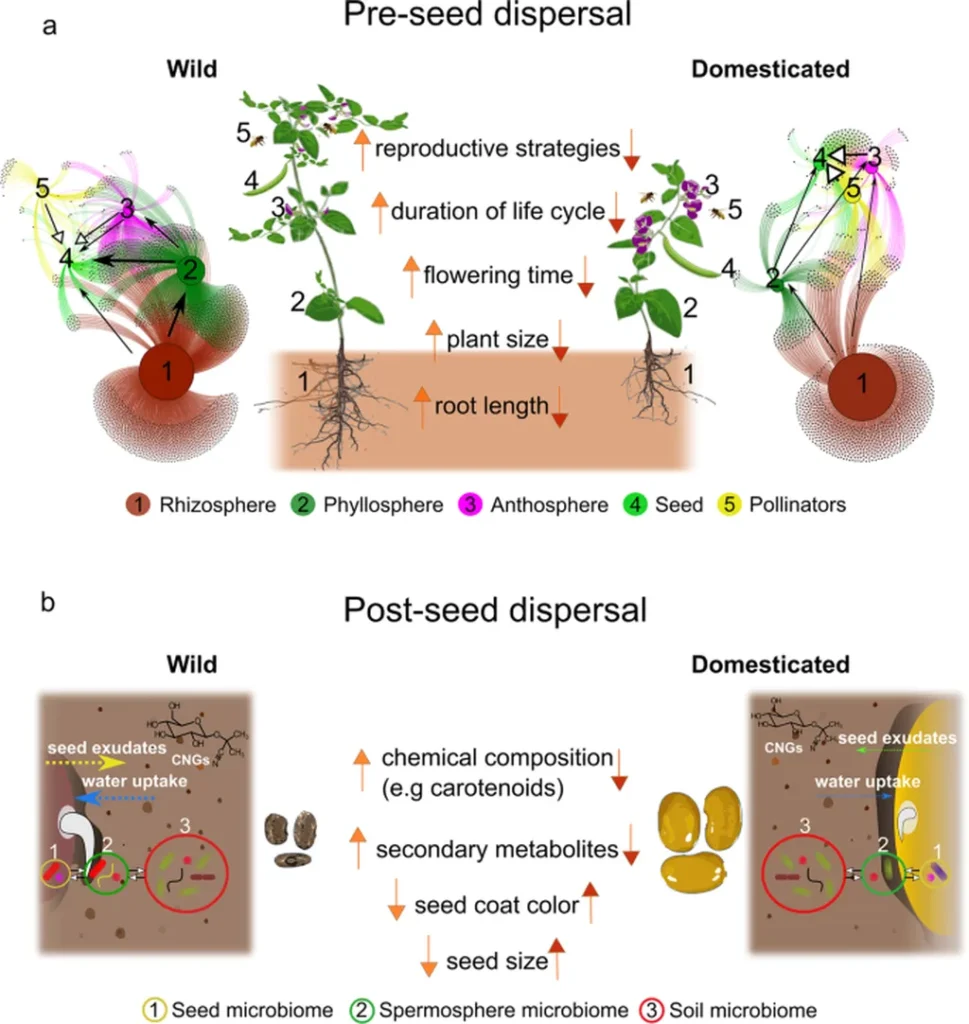In the heart of Galicia, Spain, at the University of Santiago de Compostela, a team of researchers led by Angel J. Matilla is unearthing a hidden world that could revolutionize agriculture and, by extension, the energy sector. Their focus? The bacterial microbiota of seeds, an often-overlooked component of plant-microbe interactions that plays a pivotal role in plant development and could hold the key to more sustainable farming practices.
The seed microbiota, as Matilla and his team have discovered, is a complex ecosystem that influences essential processes such as germination, stress tolerance, nutrient acquisition, and defense. Unlike soil- or rhizosphere-associated microbiomes, seed-associated microbes are transmitted both vertically (from parent to offspring) and horizontally (from the environment), making them a unique and dynamic component of plant health.
“Seed microbiota offers unique advantages,” Matilla explains. “They are intimately associated with the plant from the earliest stages of development, which means they can have a profound impact on the plant’s growth and resilience.”
The team’s research, published in the journal ‘Microbial Biotechnology’ (translated from Spanish as ‘Microbiological Biotechnology’), explores how the seed microbiota diversifies as a consequence of crop domestication. This diversification can lead to changes in the functional capabilities of the microbiota, which in turn can affect the plant’s ability to tolerate stress, acquire nutrients, and defend against pathogens.
One of the most exciting aspects of this research is its potential to advance sustainable agriculture. By understanding and harnessing the power of seed microbiota, farmers could potentially reduce their reliance on chemical fertilizers and pesticides, leading to more environmentally friendly farming practices.
But the implications of this research extend beyond the agricultural sector. As the world grapples with the challenges of climate change and the need for sustainable energy sources, the potential to increase crop yields and resilience through seed microbiota could have significant impacts on the energy sector as well. After all, many of our most promising bioenergy crops, such as switchgrass and miscanthus, could benefit from enhanced growth and stress tolerance.
However, there are still many unanswered questions. As Matilla notes, “Fundamental questions remain regarding their origin, ecological dynamics, and functional roles across environments.” Addressing these challenges will be key to fully unlocking the potential of seed microbiota.
The research team is also exploring the functional microbial genes present in seed microbiota, which could provide further insights into their roles and potential applications. This work is still in its early stages, but the potential is enormous.
As we look to the future, the work of Matilla and his team offers a tantalizing glimpse of what could be possible. By delving into the microbial world of seeds, we may unlock new ways to enhance crop growth, improve agricultural sustainability, and even contribute to the development of sustainable energy sources. It’s a reminder that sometimes, the most profound innovations come from looking closely at the world around us—and the tiny organisms that call it home.

